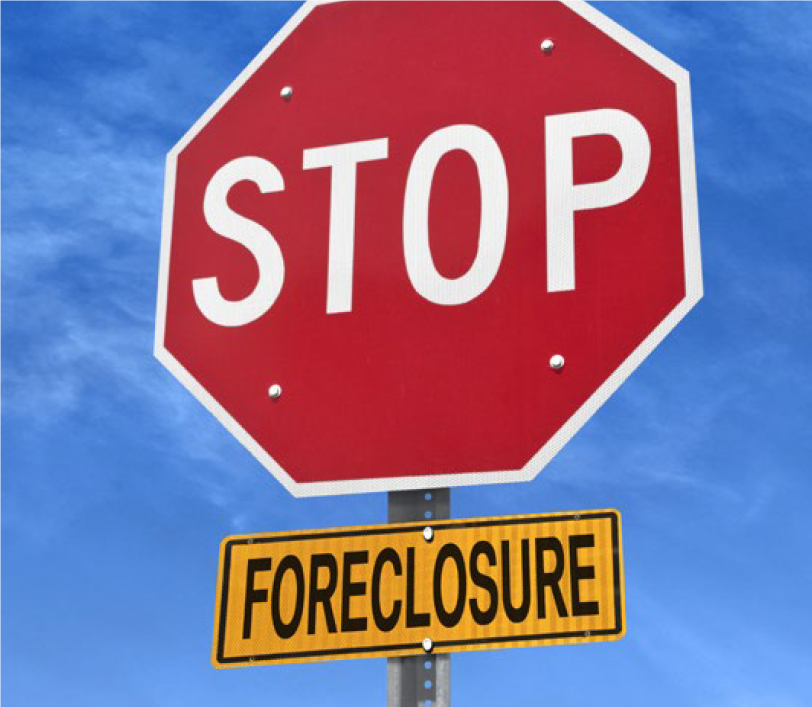
Saving the Family Home:
Foreclosure is a stressful situation to find yourself in. Discover the tips you need for how to avoid foreclosure in Hawaii and ease that financial strain.
Foreclosures are on an upward trajectory in Hawaii.
A foreclosure notice is one of the most depressing news one can receive. As hard economic times prevail, people are finding themselves piling up more and more debt. Nonetheless, regardless of the economic situation, lending institutions require you to pay off your debt or risk getting foreclosed on.
Foreclosure refers to the legal action that a lending institution takes in order to acquire a person’s property when they fail to meet their monthly loan or mortgage payments. You can also get foreclosed if you do not pay property taxes or if your home has been used as collateral for a bank loan that is in default.
So, what do you do if you receive a foreclosure notice? This article will discuss everything you need to know about foreclosures and how to avoid foreclosure in Hawaii.
What You Should Know About Foreclosure Laws in Hawaii
As mentioned earlier, a foreclosure is a legal process through which a homeowner’s right to their property becomes terminated as a result of defaulted payments.
The property is then sold at a public auction and the proceeds used to pay off the mortgage debt.
In Hawaii, lending institutions can use either judicial or non-judicial methods to foreclose on deeds. Here is what you need to know:
• Judicial Foreclosure
Also known as ‘foreclosure by action,’ it involves the lender filing appropriate documents with the court that claim that the homeowner is defaulting payments.
The lender then proceeds to deliver the notice of default to the homeowner. If they cannot contact him/her, they publish the notice.
The homeowner is given 20 days within which they should respond, failure to which the court will find them in default, thus allowing the lending institution to schedule the foreclosure sale.
You can, however, file a notice appeal within 30 days of receiving the notice of default.
Your property is then sold at a public auction held on the court steps and is overseen by an appointed commissioner.
It is the commissioner who publishes the foreclosure sale notice on the local paper complete with auction and open house dates.
Anyone can bid at the auction. Winning bidders are usually required to pay 10 percent of the bid.
• Non-Judicial Foreclosure
Also known as ‘foreclosure by sale’, this method doesn’t involve a court process.
This is because, in your mortgage promissory note, there is a provision known as the ‘power of sale’ clause. This clause allows the lending institution to foreclose on a property if payments are not paid.
Consequently, the lender’s lawyer publishes a notice of foreclosure sale at least once a week for three consecutive weeks in the local newspaper. The final publication should be made at no less than 14 days before the sale.
Additionally, a copy of the notice needs to be mailed to the property owner or posted on the property at least 21 days before the date of the foreclosure sale. The property is then auctioned off to the highest bidder.
In both cases, you cannot redeem your property once it has been sold.
How to Avoid Foreclosure in Hawaii
If you are facing imminent foreclosure on your property, there are various routes you can take to ensure you are not left high and dry. They include:
1. Request a Loan Modification
This involves renegotiating terms of your contract with the lender with the goal of lowering your monthly payments.
To achieve this, the lender might agree to either lower your interest rates, reduce the amount you owe, or create a payment plan with longer terms.
The Department of Housing and Urban Development advises homeowners looking for a loan modification to contact their lenders directly.
The lender will then carefully evaluate your situation to see whether modification is possible and present the available options to you.
2. Government Programs
The government has various programs in place to help homeowners who are struggling with their monthly mortgage payments and risk getting foreclosed.
Majority of these programs are administered through the U.S. Treasury and the Department of Housing and Urban Development (HUD).
Making Home Affordable is the name of the government initiative that contains these programs. They include:
• HAMP
HAMP allows you to lower your monthly payment to 31% of your verified pretax monthly gross so as to make payments more affordable.
Typically, getting a HAMP modification allows you to see up to a 40% drop in your monthly payments.
• Principal Reduction Alternative (PRA)
PRA’s structure is such that it helps homeowners whose property is significantly worth less than what they owe the lending institution. Its aim is to encourage investors and servicers to reduce the total amount you owe.
• HARP
If you have not been successful at obtaining traditional refinancing as a result of your home’s value declining, you might be eligible to get refinancing through HARP.
This program is designed to help you get a more stable and affordable mortgage.
• Treasury/ Federal Housing Administration Second Lien Program (FHA2LP)
If you are the owner of a second mortgage and the party servicing your first mortgage agrees to participate in Federal Housing Administration (FHA) Short Refinance, you just might qualify to have the second mortgage eliminated or reduced through FHA2LP.
Nonetheless, even if the second servicer agrees to participate as well, the entire amount of your mortgage debt after refinancing should not exceed 115 percent of your property’s current value.
• Home Affordable Unemployment Program (UP)
If the reason you have been having a hard time meeting your monthly mortgage payments is because of unemployment, you might qualify for UP.
This program works by either temporary reducing or suspending your mortgage payments for at least 12 months as you look for a job.
• Federal Housing Administration Forbearance for Unemployed Homeowners
The FHA’s requirements dictate that servicers extend the forbearance period for up to 12 months for unemployed homeowners. This period used to be four months.
• Home Affordable Foreclosure Alternatives (HAFA)
If you are unable to afford your monthly mortgage payments for whatever reason, and you are thinking about moving to other affordable housing options, you might qualify for a deed-in-lieu of foreclosure through HAFA.
While the above government-sponsored programs have helped some people; for the most, however, they are lengthy processes that require a lot of protocol.
Thus, the 21 days the lender allows you before they decide to sell your house might not be enough. Nonetheless, they are worth considering, but not at the last minute.
3. File for Chapter 13 Bankruptcy
The thought of bankruptcy is a pill that a lot of people hate swallowing, but it is also an option worth considering.
This is because after filing Chapter 13, the court allows you an automatic stay which gives you valuable time to explore your options.
Nonetheless, this stay is not permanent, meaning you will have to come with a decision regarding your next move.
You will need to answer these questions. Is it in your best interests to sell the home or should you use that time to catch up on the amount owed?
Chapter 13 bankruptcy restructures your current debts into a payment plan that is considerate of your present financial situation. Each Chapter 13 plan, therefore, is different as it is customized to the needs of an individual.
As such, if you are about to be foreclosed, your debt on mortgage payments can be customized to fit your payment plan.
Ultimately, if you are able to pay your monthly installments as per the plan in addition to meeting your regular monthly mortgage payments, you should be able to hang onto your home.
4. Sell Your Home Quickly
The biggest problem with fighting foreclosures is that most people are usually still stuck in a situation that is getting them foreclosed in the first place.
When you choose to renegotiate your terms with your lenders, they will still require that you make some form of payments every month.
With government sponsored programs, they might take too long and the house gets foreclosed anyway.
So, what do you do if you do not have the means to meet the terms of either of the above options? This is when you should start considering selling your home to a reputable home buyer.
A reputable home buying company will offer you a fair offer for your property. The benefit of working with such a company is that they give you instant cash thus allowing you to avoid the foreclosure terms.
With cash in hand, you will be able to channel some into paying off the remaining debt and have some left to help you finance your next moves.
Admittedly, selling houses to investors is surrounded by a lot of stories that might make you a bit hesitant. Therefore, it is good to educate yourself on myths about house selling.
Handling a Foreclosure
Every day, dozens of people in Hawaii receive notices of foreclosure from lending institutions. While times are hard, lenders are also looking to get back their money.
To ensure that you do not lose your house, consider the above tips on how to avoid foreclosure.
Is foreclosure imminent? Selling your house might be the best option for you.
Crowne Properties is an acclaimed and accredited property buyer on Oahu. We buy properties from Hawaii Residents at fair prices without having to involve the hassle of agents. Fill out our form and stop the foreclosure on your house today!

